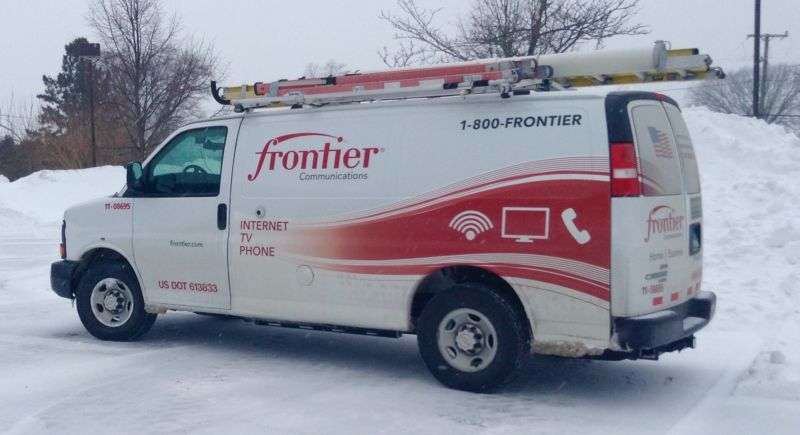
Frontier letting its phone network fall apart, state investigation finds

Frontier Communications has failed to properly maintain its telecom network in Minnesota, leading to “frequent and lengthy” phone and Internet outages, an investigation by the Minnesota Commerce Department found.
Despite that, Frontier has failed to provide refunds or bill credits to customers affected by outages that have sometimes lasted for months, the government report said. Frontier is also guilty of frequent billing errors that caused customers to pay for services they didn’t order and has failed to promptly provide telephone service to all customers who request it, the report said.
“Many of the issues reported by consumers show direct violations of Minnesota law and [Minnesota Public Utilities] Commission rules and indicate broad, systemic problems with Frontier’s service quality, recordkeeping, and business operations,” the Department of Commerce wrote in the report issued Friday.
As a result, the state could require Frontier to provide refunds to customers and to boost staffing and infrastructure investment.
A Commerce Department announcement summarized the key problems as follows:
- Frequent and lengthy service outages, including loss of customer access to 911 emergency services;
- Delays in repairing and restoring service;
- Failure to provide expedited responses to service outages affecting vulnerable customers with medical needs;
- Failure to maintain and repair equipment, causing service outages and leading to public safety hazards such as lines and damaged equipment on the ground;
- Lack of investment in infrastructure to ensure reliable service;
- Frequent billing errors, including inaccurate and unauthorized charges;
- Failure to provide refunds or bill credits for service outages;
- Lack of timely, responsive customer service, including lengthy call wait times, inaccurate information and “lost” repair tickets; and
- Discriminatory practices such as prioritizing new service installations over repairs of existing service and providing slower repair services in rural areas compared to more populated areas.
1,000 customer complaints
The report was completed at the request of the Minnesota Public Utilities Commission (MPUC). “The report is based on more than 1,000 consumer complaints and statements, as well as Frontier’s responses to information requests by the Commerce Department,” the announcement said. The department also held seven public hearings as part of its investigation.
The Commerce Department urged MPUC to issue an order finding that Frontier violated state laws and rules and requiring it to offer refunds and credits for affected customers. The requested order would also require Frontier to undertake an extensive program to fix the various problems identified in the report. Action is needed to “preserve universal service and protect Minnesota customers from a telephone company that faces little or no competitive pressure that would otherwise require it to adequately serve customers,” the Commerce Department said.
Frontier is a common carrier phone service provider for nearly 100,000 Minnesota households and businesses, but it has failed to comply with “carrier of last resort” requirements to offer phone service to everyone in its territory, the report said.
“Many households, including those whose members include elderly, disabled, or otherwise medically at-risk individuals, rely on their telephone to access emergency services, but also to stay in touch with schools, daycares, work, doctors, family, friends, etc.,” the report said. But the investigation found that Frontier “does not offer timely installation of telephone service in its service area,” making customers wait months or even more than a year to get phone service, the report said.
“This is unacceptable and contrary to Minnesota’s laws and the Commission’s rules,” the report said.
Frontier also provides Internet service and is receiving $28 million over 10 years in federal funding to bring broadband to 14,000 locations. The state’s authority over Frontier is primarily for landline phone service, which is more heavily regulated than broadband.
In a statement, Frontier said it “strongly disagrees” with the findings.
“Frontier and its employees work hard to provide reliable, affordable telecommunications services to approximately 90,000 customers in Minnesota, many in rural communities where no other provider will invest in providing service,” the company said. “Frontier recognizes we experience service issues and delays from time to time with some of our customers. We are an ethical company committed to our customers and the Minnesota communities we serve. We take this matter seriously and will respond appropriately before the Public Utilities Commission.”
We asked Frontier if it disputes any of the specific allegations in the report, but the company provided no answer beyond its general statement.




